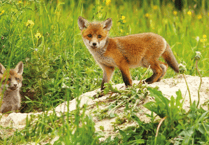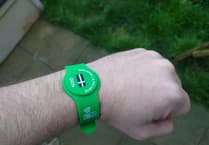A NEW threat to the future of the already diminishing number of Dartmoor ponies has been revealed following a statement that their existence was not critical to the ecology of Dartmoor.
The statement has sparked huge uproar among people dedicated to their protection.
The moorland icon has taken another hit after representatives of Natural England revealed in a meeting that there was no evidence that ponies were vital to the ecology of the moor.
West Devon resident Joss Hibbs was chairing a meeting on Dartmoor in February, attended by two Natural England representatives, hill farmers and representatives of the Dartmoor National Park Authority and the Dartmoor Commoners' Council, when a Natural England representative stated that 'there is no evidence that ponies are critical to Dartmoor's biodiversity' and 'it is possible for Natural England to deliver Indicators of Success without ponies'.
Ms Hibbs said she did the right thing and had left the matter with the Dartmoor National Park Authority to deal with —but has now taken it upon herself to write to the chief executive of Natural England to review his organisation's view of the ponies before it is too late.
She told the Times: 'They have opened a door which could be detrimental to the Dartmoor pony.
'Natural England is supporting the view that there is no proof of the ponies' contribution to biodiversity on Dartmoor and the species most commercially viable to farmers should take precedence.
'The lack of evidence works both ways — there is no evidence that the ponies do not contribute to the moor's biodiversity either. There is no evidence that we can cure cancer, but we keep trying.
'Ponies have been farmed on Dartmoor alongside cattle and sheep since at least the bronze age.
'They are part of the moor's biodiversity and have contributed to its ecology for a millennia. If these herds are lost during this blip of bureaucratic lack of understanding, they cannot later be replaced by turning out random ponies.'
Ms Hibbs and the Friends of the Dartmoor Hill Pony have launched a campaign and petition to encourage as many people as possible to write to the chief executive of Natural England, James Cross, asking him to review Natural England's inclusion of hill ponies in agri-environment agreements on Dartmoor commons.
Ms Hibbs said: 'The Friends launched a campaign and petition at the Devon County Show to get as many people as possible to sign the petition and write letters to the CEO.
'A petition they could just put in a drawer and forget about but letters they have to look at and respond to.
'We're hoping he's going to get so fed up with the amount of letters he is receiving that he will have to do something about it.
'A full and detailed review of the consequences of his organisation's attitude to ponies on Dartmoor is needed before any common has ponies removed from its grazing plan.'
In a response to the Times about the issue, Mark Jones, Natural England land and conservation manager for Devon, Cornwall and the Isles of Scilly, said: 'A managed mix of grazing animals is required to improve the wildlife value of Dartmoor.
'While ponies themselves are not critical to this mix, they are part of it.
'We recognise that the significance of the pony runs deeper than their biodiversity value as they are intrinsic to the cultural identity of Dartmoor.
'For this reason, we will continue to work with the Dartmoor Hill Pony Association and other interested parties to help ensure the Dartmoor pony remains a valued part of the landscape of Dartmoor long into the future.'
Ms Hibbs and the Friends group are encouraging everyone to sign the petition and write to Mr Cross to help them get a detailed review and get Natural England to include the Dartmoor pony within its agri-environment agreements, either in their own words or using a letter template which can be found on the Facebook page http://www.facebook.com/groups/dartmoorwarriors/">www.facebook.com/groups/dartmoorwarriors/
Postcards of support are also available to fill out and send and can be downloaded from the Facebook page or a limited number will be available from the Times office.




Comments
This article has no comments yet. Be the first to leave a comment.